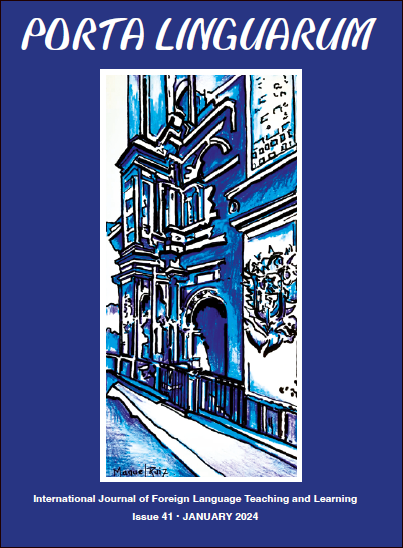L2 Pragmatic Competence in Chinese EFL Routines. Yuqi Wang (2023) Singapore, Springer, 144 pages, ISBN 978-981-19-6351-3
DOI:
https://doi.org/10.30827/portalin.vi41.28749Abstract
Pragmatic routines have long been considered essential tools for second/foreign language (L2) learners’ pragmatic competence and language use (Taguchi & Roever, 2017). However, the current literature is largely confined to the recognition, comprehension, and production of formulaic routines without considering the role of task modality in learners’ cognitive processing of such chunks (Roever, 2012). To fill this gap, in this monograph entitled “L2 Pragmatic Competence in Chinese EFL Routines”, Wang takes a cross-sectional approach to study L2 pragmatic routines of Chinese learners in light of pragmatic multimodality and the socio-cognitive perspective. In doing so, the author scrutinizes the mediating role of proficiency and study abroad experience in different aspects of pragmatic routines’ competence. This resource expands the scope of research on L2 pragmatic routines by integrating multidimensional pragmatic modalities into the study of routines as core constructs of pragmatic competence. It helps English as a foreign language (EFL) learners, teachers, researchers, and teacher trainers to actively focus on the promotion of L2 pragmatic routines. Moreover, this monograph presents some theories and practices that EFL educators may draw on to increase learners’ reception and production of routines in EFL contexts.
Downloads
References
Roever, C. (2012). What learners get for free: Learning of routine formulae in ESL and EFL
environments. ELT Journal, 66, 10–21.
Taguchi, N., & Roever, C. (2017). Second language pragmatics. Oxford University Press.



















